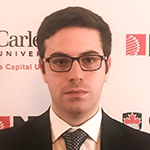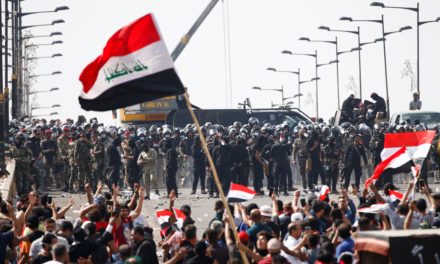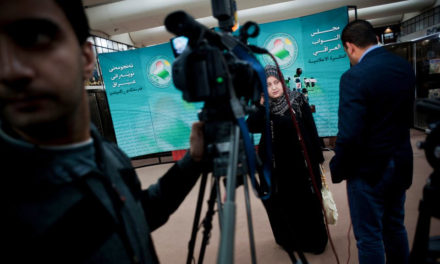(Demonstrations outside of local government in Basra. AFP)
The waves of protests that have rocked southern Iraq enter a second week as the government struggles to contain mounting anger over poor services and unemployment. The protests, which began in Basra, come a decade after the Basra Federal Region campaign that called for a federal region covering the governorate of Basra with independent powers, similar to the Kurdistan Region of Iraq. The movement erupted again in September 2014, shortly after the fall of Mosul to ISIS, as some southern Iraqis felt isolated despite the thousands of southern Iraqis fighting to liberate their land in the north. Much of this sentiment was rooted in the belief that a federal region would empower Basra and improve services. Although this regionalist movement died down, annual protests continued each summer centering on demands for better services, particularly electricity.
The Kurdistan Region of Iraq recently witnessed protests in Sulaymaniyah and these demonstrations came after a failed independence referendum carried out by the region’s government. This time, the people of Kurdistan marched for better services and the payment of salaries withheld by the Kurdistan Regional Government. Protestors were not demanding independence, rather their wages and improvement in their quality of life.
Both Basra and the Kurdistan Region of Iraq prove that citizens are primarily concerned with their standard of living rather than political ambitions such as forming regions or independent states. In fact, incentives to gain greater autonomy are an attempt to improve standard of living not due to difference or hate to other parts of Iraq, especially in Basra. If recent protests in Iraq have proven anything, it is that Iraqis have sympathy to one another in any hardship they may face and will stand with one another if need be.
Patience of citizens is running thin now that the war with ISIS is officially over and returning fighters and family members expect greater effort from both the federal and provincial governments to provide services. Iraqis had hoped to witness the start of reconstruction after the country announced victory over ISIS, but many people now feel their living conditions have worsened. Families in the southern provinces complain that while their children went to fight ISIS in the north of the country and gave many sacrifices, their region is suffering from marginalization and the deterioration or absence of services. Despite the oil wealth in southern Iraq, poverty and unemployment are rampant, and the situation is worse in Basra, which has been suffering from the added burden of organized crime and tribal violence.
These protests are not only a reminder to the federal government but to the citizens of Iraq as well. Those that chose to abstain from voting in the federal election on May 12 have the opportunity to make their voice heard when provincial elections take place in December of 2018. Iraqis must make the most of this opportunity to choose the provincial representatives most deserving of their vote to provide the services they demand. A higher turnout rate is needed to remind the future federal and provincial governments that the Iraqi people are the ones who elected them and who they must be answerable to.
For the future government, delivering better services will not only be fulfilling its duty, but will also prevent mass protests from taking place. The fewer reasons for Iraqis to have to protest, the less risk the government has of facing politically motivated demonstrations that may turn into riots and looting.
The plan to resolve the lack of services will be difficult with the level of corruption Iraq faces within its government. However, protests for the past three years in Iraq have supported the government to cleanse itself of corruption; the next prime minister of Iraq will not have an excuse for not combatting corruption because he or she will not be facing a war and can focus on citizens’ demands.

Hamzeh Hadad
Hamzeh Hadad is an Iraqi writer and commentator. He is currently a Master of Arts candidate at the Norman Paterson School of International Affairs.










